MercoPress. South Atlantic News Agency
Tag: European Union
-
Monday, August 5th 2024 - 08:54 UTC
EU cannot recognize Maduro's alleged victory
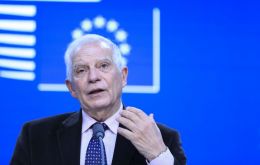
The European Union (EU) pointed out Sunday that the results announced by Venezuela's National Electoral Council (CNE) granting victory to the incumbent Nicolás Maduro “cannot be recognized” given the lack of documentation supporting it, due to which a “greater independent verification of the electoral records” was needed.
-
Friday, July 19th 2024 - 08:54 UTC
Von der Leyen gets second 5-year term at the EC helm
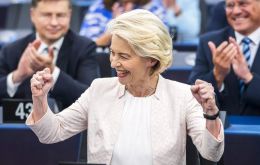
The 65-year-old German politician Ursula von der Leyen was chosen once again Thursday by the European Parliament to chair the European Commission for a second five-year term with 401 votes against 284 out of a total 720-seat House.
-
Tuesday, July 2nd 2024 - 08:04 UTC
Venezuela's Maduro agrees to resume talks with US
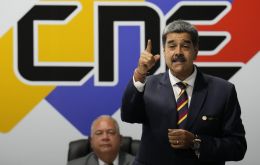
Venezuelan President Nicolás Maduro announced Monday that he would be seeking to resume talks with the United States this week while his government referred to the European Union as one of the “most inefficient organizations in the world” less than a month ahead of local elections whereby the head of state intends to secure another term in office amid disenfranchised opposition leaders.
-
Thursday, June 13th 2024 - 10:17 UTC
French snap election: Macron's strategy to erode a Marine Le Pen hard right government
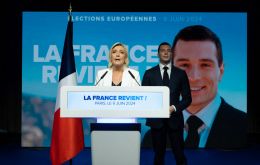
Even before the final results were in from all of the 27 European Union countries that voted in the EU elections last weekend, French President Emmanuel Macron had called for national elections in France for the end of this month.
-
Monday, June 10th 2024 - 10:21 UTC
European Parliament elections show continent switching rightwards

European Union citizens switched to the right en masse at Sunday's parliamentary polls dealing a severe blow to progressive administrations such as the ones in Belgium and France, resulting in the resignation of Prime Minister Alexander De Croo and President Emmanuel Macron dissolving the National Assembly and calling snap elections, respectively.
-
Thursday, June 6th 2024 - 08:40 UTC
EU votes a new parliament; political center could be removed by radical right wing coalition
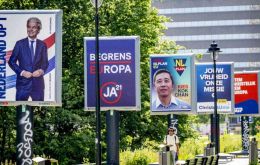
Mobilizing the 350 million people eligible to cast ballots in the European Union event once every five years is not a straightforward task. Voter turnout at the second-largest democratic election in the world after India was around just 50% in 2019. There are 720 seats in the EU Parliament with elections traditionally held over four days.
-
Wednesday, May 29th 2024 - 10:59 UTC
Venezuela withdraws invitation to EU as election observers

Venezuelan authorities announced Tuesday they were withdrawing the invitation previously extended to the European Union (RU) to monitor the July 28 elections in a move that cast additional doubts over a process that has for long looked fudgy following the disenfranchisement of opposition leader María Corina Machado.
-
Tuesday, May 21st 2024 - 12:25 UTC
Brexit and UK's rising costs of implementing customs to EU imports
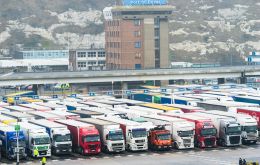
The UK voted to leave the European Union in 2016 but remained in the bloc's single market and customs union until 2021. When UK withdrew from the EU customs union a new RU/UK Trade Cooperation Agreement (TCA) went into effect.
-
Monday, May 20th 2024 - 10:36 UTC
Milei's deficient diplomacy triggers concurring responses

The European Union's top diplomat Josep Borrell criticized Argentine President Javier Milei for his derogatory remarks in Madrid targetting Prime Minister Pedro Sánchez's wife Begoña Gómez and insisted that “attacks against relatives of political leaders have no place in our culture.” Borrell thus became just another voice condemning the South American leader's attitude.
-
Monday, May 6th 2024 - 20:34 UTC
After EU June elections, agreement with Mercosur can be reached: “A matter of time and timing”, EU negotiator
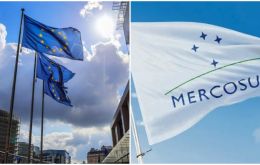
The Mercosur/European Union trade and cooperation agreement, “is a complicated process but it is also a matter of time and timing”, according to Rupert Schlegelmilch, chief EU negotiator of the accord who recently visited Mercosur country and associate members to meet government officials and business groups to confirm EU's determination to finish the deal.
